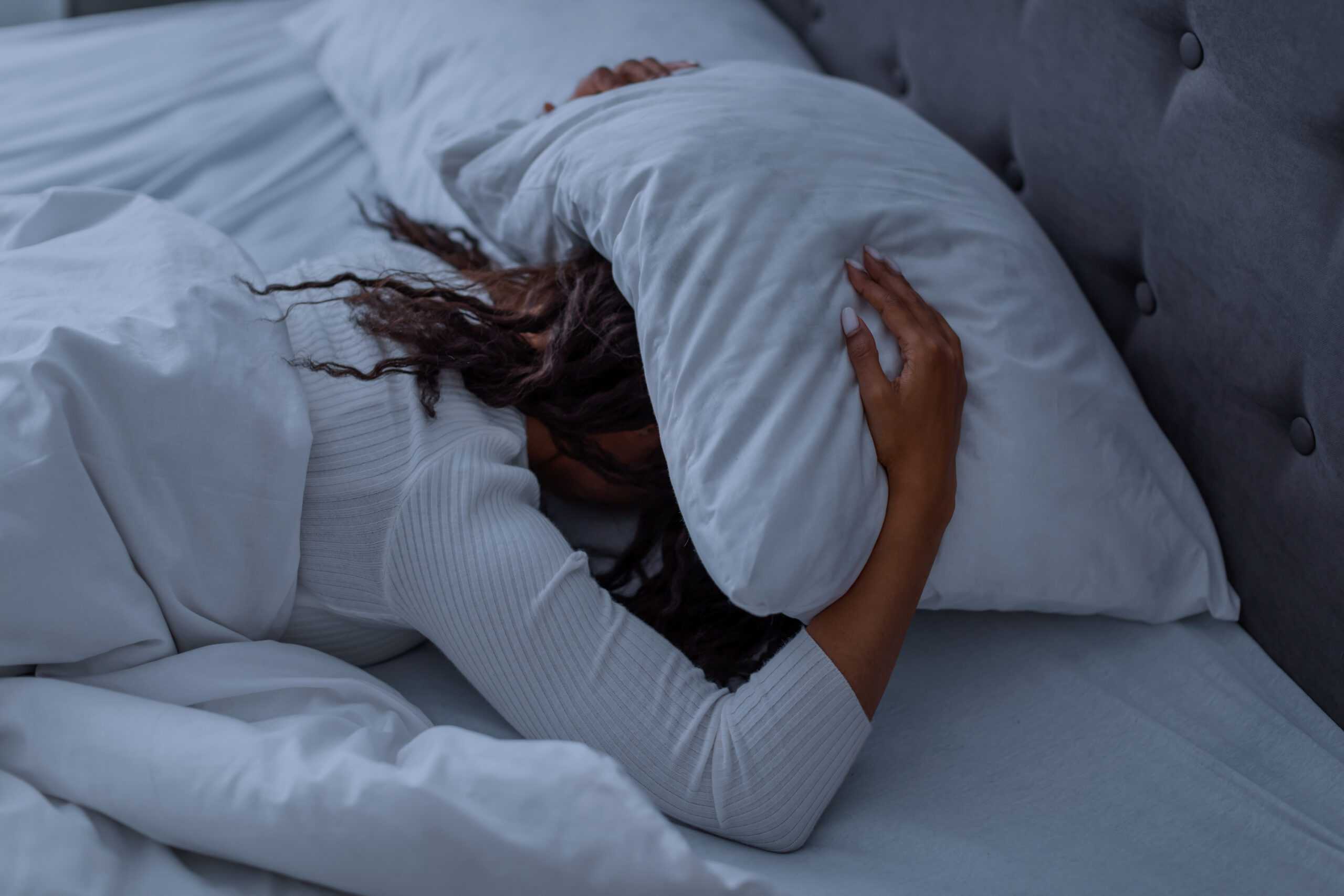Online Cognitive Behavioral Therapy Is Effective among Black Women.

Online Cognitive Behavioral Therapy Is Effective among Black Women
The Internet-delivered therapy—already considered the ‘gold standard’ treatment for insomnia among White women—also appears to be effective among Black women, who are disproportionately experience poor sleep.
Black women are disproportionately affected by poor sleep, which is associated with increased risk of adverse outcomes such as cardiovascular disease, depression and worse quality of life. The gold standard treatment for insomnia is cognitive behavioral therapy for insomnia (CBTI), which specifically targets the individual’s problematic sleep behaviors and beliefs.
Internet-delivered CBTI programs for insomnia have been developed to increase patient access to treatment. While these programs have been shown to be very effective, the vast majority of this research has been conducted among non-Hispanic White participants. This can be an issue for minority groups who understandably may not trust the healthcare system. In particular, Black women were less likely than White women to initiate internet-delivered CBTI, or to stay engaged with treatment once they began.
Now, a study led by researchers from the Slone Epidemiology Center (SEC) and the Division of Sleep Medicine at Harvard Medical School shows that internet-delivered CBTI is highly effective among Black women.
Published in the journal JAMA Psychiatry, the study found that a version of the CBTI program tailored specifically for Black women improves their engagement with treatment.
“While Internet-delivered interventions offer better access to evidence-based care, patient adherence with automated programs that are designed to change health behaviors can be an issue. The development of a culturally tailored intervention may be the key to better engaging minority patients with proven insomnia treatment,” says study senior author Lynn Rosenberg, professor of epidemiology, an epidemiologist at the SEC and a principal investigator of the BWHS.
For the study, researchers assigned 333 women with insomnia from Boston University’s Black Women’s Health Study (BWHS), a large follow-up study of Black women in progress since 1995), to three internet-delivered treatments: the Sleep Healthy Using the Internet (SHUTi); SHUTi-BWHS, a culturally-tailored version of SHUTi developed specifically for Black women, guided by a team of stakeholders including Black women; and patient education about sleep (PE).
The trial participants were unaware of the program to which they had been assigned. The PE group was provided with sleep education materials, such as sleep hygiene recommendations, while the women assigned to SHUTi and SHUTi-BWHS worked their way through the interactive program that contained six modules addressing various aspects of sleep. The modules delivered CBTI using psychoeducational content, customized recommendations based on the participant’s reported sleep, videos highlighting common challenges that insomnia patients experience when implementing CBTI, and advice from experts. The SHUTi-BWHS program addressed key issues that may be more likely to affect a Black woman’s sleep, with all of the program’s visual content revamped to include only Black patients and sleep physicians.
Participants in both SHUTi and SHUTi-BWHS had greater improvements in their insomnia symptoms compared with the PE group, with these gains sustained at 6 months after program completion. Substantially more women who received SHUTi-BWHS completed the program than those who received SHUTi. This is important as women who completed either SHUTi or SHUTi-BWHS were more likely to see their sleep improve.
The researchers were encouraged that the efforts to address sleep problems facing Black women was successful.
“Profound health inequities affect the lives of so many racial/ethnic minority patients,” says study corresponding author Eric Zhou, a clinical psychologist at the Dana-Farber Cancer Institute. “We are proud to have conducted research designed specifically to address sleep health disparities in Black women, and are hopeful that this work spurs further interest and investment into research in this critical domain.”
At SPH, the study was co-authored by Timothy Heeren, professor of biostatistics, and alum Traci Bethea (SPH’11).
Comments & Discussion
Boston University moderates comments to facilitate an informed, substantive, civil conversation. Abusive, profane, self-promotional, misleading, incoherent or off-topic comments will be rejected. Moderators are staffed during regular business hours (EST) and can only accept comments written in English. Statistics or facts must include a citation or a link to the citation.